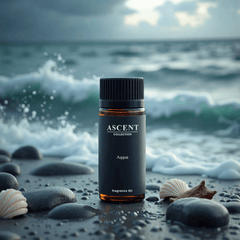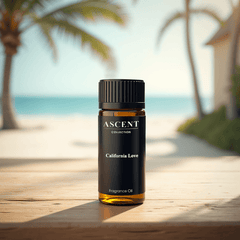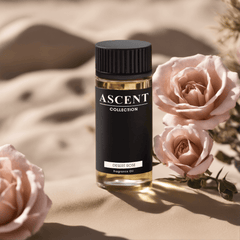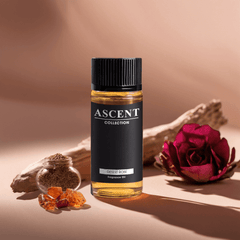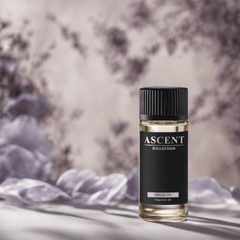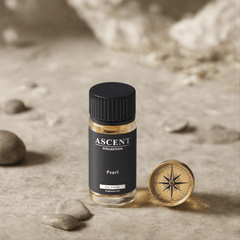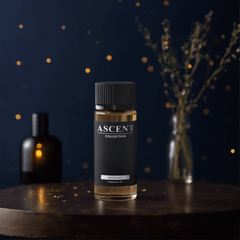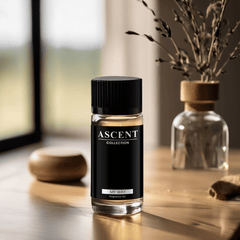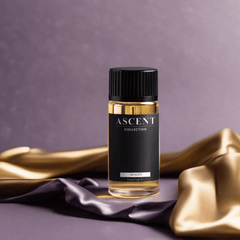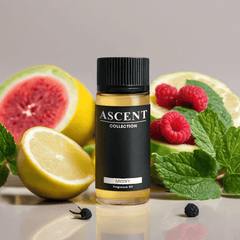
What is your brand's last impression?

The Power of Scent Marketing: Elevating Brand Experiences
The Connection Between Scent and Memory
Scent stands apart from other human senses because it connects directly to our memories and emotions. Odour molecules enter the nasal cavity to bind with olfactory receptors when we detect a scent. Olfactory receptors transmit signals straight to the olfactory bulb which exists as part of the limbic brain system. The limbic system encompasses both the hippocampus and amygdala which serve essential functions in memory processing and emotional responses while the hippocampus remains fundamental for creating new memories and accessing previously stored ones. The linkage between our olfactory systems and the brain's memory centres enables specific scents to trigger immediate mental time travel along with strong emotional memories from the past. The memories triggered by scents operate below conscious awareness and stealthily affect our emotions and actions. Implicit memory enables scent to become an effective marketing tool because it can unconsciously shape customer experiences and perceptions.
Research shows visual memory reaches only 50% accuracy three months after initial learning. Humans show a 65% recall accuracy for odours that they experienced one year ago.
Harnessing the Power of Scent
Forward-thinking companies have discovered how scent marketing can shape customer perceptions and behaviour patterns. Businesses that strategically use scents can establish emotionally positive environments which contribute to increased sales and stronger brand loyalty.
Here’s how it works:
Brand Identity: Through scent marketing businesses can create a distinctive brand identity. While logos and slogans represent brands visually, signature scents provide an olfactory brand identity. The brand’s scent forms a vital component of its narrative that connects deeply with consumers. Capella Hotels holds the title of the top hotel brand worldwide thanks to its beautiful signature scent which customers recognise at all of its global locations.
Enhancing the retail environment: The Canada Goose stores offer a multisensory shopping experience by using a signature scent that represents Canadian wilderness and complements their interior design and music.
Time and place association: Through scent marketing companies forge connections between particular fragrances and their business products or services. When visual and audio cues combine with an appropriate scent they generate a memorable experience and evoke familiarity. Ritz-Carlton hotel experiences leave lasting memories which guests frequently bring up due to the hotel's distinctive scent.
Subtle influence: The most remarkable characteristic of scent marketing lies in its ability to operate subtly. Although customers may not recognise the scent consciously, it still affects their emotions and actions.
Research conducted by Nike showed that customers had an 84% higher chance of purchasing shoes in a scented environment compared to non-scented environments. The study found customers were ready to pay up to 20% more when shopping in environments with scent.
Scent marketing provides an innovative tool for businesses to transform brand interactions and create elevated consumer experiences.
Businesses are using scent marketing to revolutionise their connection strategies with customers. Companies that use aroma in their marketing strategies can build unforgettable customer experiences while strengthening their brand presence and directing consumer actions. Scent marketing stands out in consumer engagement because it allows brands to reach into emotions and memories directly.
Why Scent Marketing Works
Smell stands out as the strongest sense for making emotional bonds. Studies reveal that olfactory stimuli trigger memories at a rate 100 times higher than visual, auditory, or tactile stimuli. Scents reach emotional and memory centres directly while avoiding the rational brain which makes them a very powerful branding instrument.
A well-designed scent strategy can:
Enhance customer satisfaction
Increase dwell time in stores
Boost sales and conversions
Strengthen brand recognition and loyalty
Applications of Scent Marketing
Scent marketing proves beneficial to a variety of businesses including retail stores, hotels, spas, and fitness centres. Using scent strategically within retail settings leads to higher customer involvement and stimulates purchase behaviour. Hotels use signature scents to establish welcoming atmospheres and strengthen their brand identity. Fitness centres and spas implement aromatherapy-based fragrances to create relaxing and health-promoting atmospheres.
The Science Behind Aromachology
The study of scent impact on human behaviour known as aromachology provides essential insights for scent marketing strategies. Specific scents trigger particular emotional responses like relaxation from lavender or energy and focus from citrus. Businesses achieve lasting sensory impact by choosing fragrances that match their brand objectives.
Implementing Scent Marketing
Creating an effective scent marketing strategy demands more than the selection of a pleasant fragrance. A successful scent marketing strategy needs to combine target audience research with brand identity definition and emotional evocation. Businesses need to evaluate the delivery method they choose for scent distribution which includes HVAC systems, standalone diffusers or localised scent machines.
Benefits of Scent Marketing for Businesses
Increased Brand Recall: Distinctive smells create positive brand associations which help customers remember the brand with greater ease.
Enhanced Customer Experience: The presence of pleasant scents establishes an inviting environment which motivates customers to stay longer within a space.
Emotional Connection: The use of scents triggers emotional responses which builds stronger connections between customers and brands.
Higher Revenue: Research demonstrates that retail businesses can experience up to a 20% increase in sales through scent marketing strategies.
Conclusion
Scent marketing stands as an established technique which businesses can use to improve customer experiences while simultaneously promoting business expansion. The application of fragrance allows businesses to establish emotional connections with customers while simultaneously reinforcing their brand identity and creating memorable customer experiences. Scent marketing integration can revolutionise customer engagement with your brand if you run a retail store, hotel, or wellness centre.

